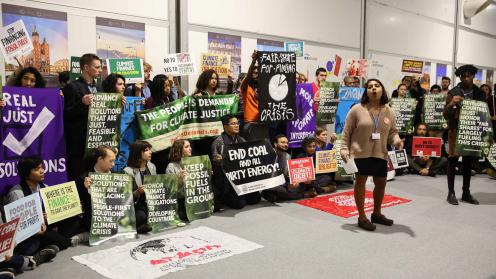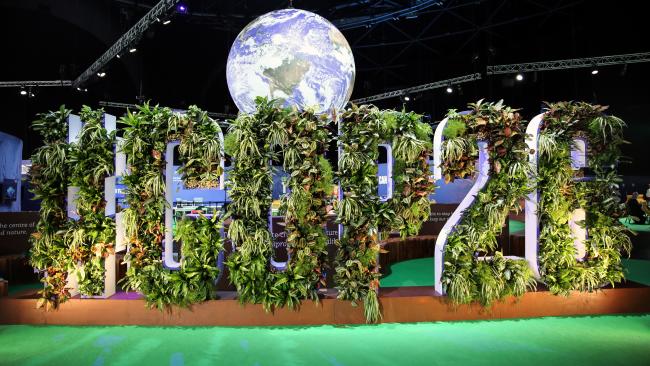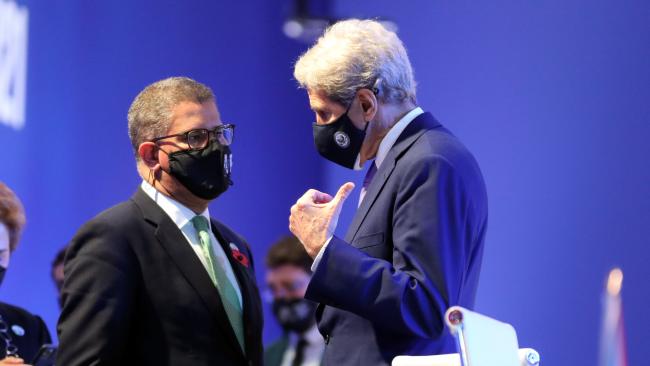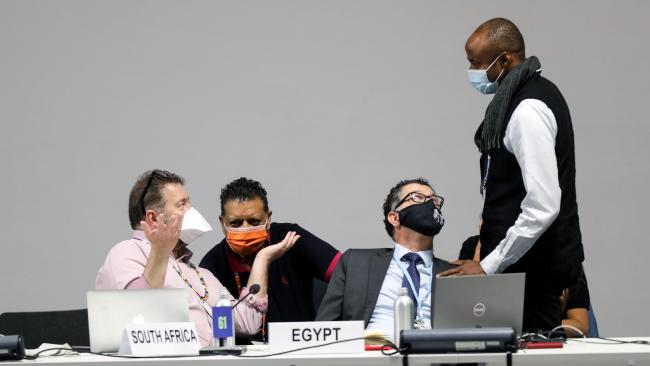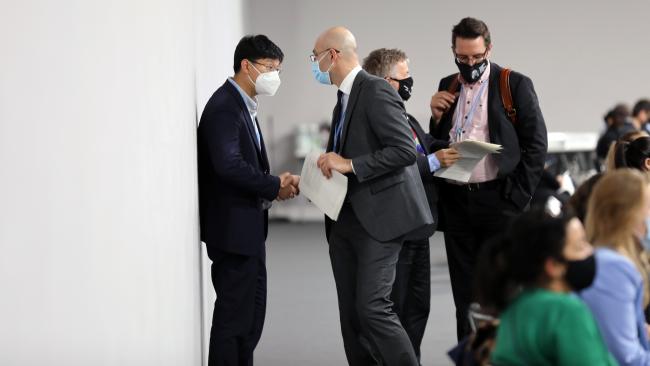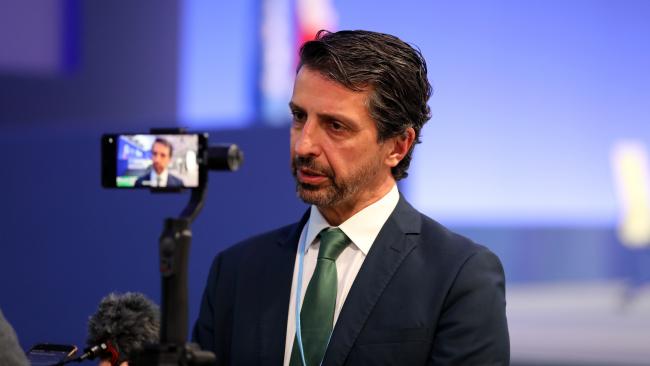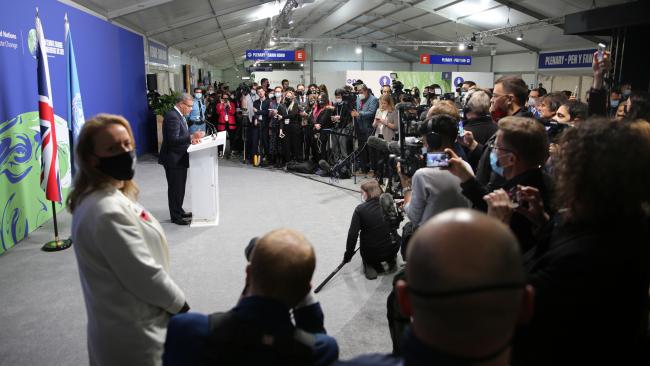The CMA gaveled to a close at 11:27 pm.
The CMP gaveled to a close at 11:15 pm.
The COP gaveled to a close at 11:12 pm.
*** Update 13 November 7:22 pm: The closing plenary resumes.
*** Update 13 November, 6:00 pm: The Presidency's stocktake closed and parties await plenary. Informal-informal negotiations are convening with COP 26 President Sharma, the US, China, India, and others.
*** Update 13 November, 3:30 pm: COP 26 President Sharma asks all to accept the package. Parties made lengthy statements, and many express that the package is not perfect, but they are willing to compromise and accept it. Some parties indicate they wish to see changes.
*** Update 13 November, 10:00 am: The Presidency will convene an informal stocktaking at 12:00 pm.
***Update 8:30 pm: Deliberations will continue overnight, new texts are expected at 8:00 am UTC on Saturday, 13 November, and an informal stocktaking will be held at 10:00 am UTC at the earliest.
The last day of the meeting opened with the Peoples’ Plenary, before the waiting game began.
During an informal stocktaking session, COP 26 President Alok Sharma asked countries to bring solutions to the many outstanding issues. Countries’ statements showed still-diverging views on:
- The overarching cover decisions;
- Finance, including the new collective quantified finance goal and long-term finance;
- Loss and damage;
- Article 6 (market and non-market-based mechanisms); and
- Common time frames.
For each of these issues, there are complex debates underway. For example, the discussions on the Article 6 mechanisms include disagreements on whether or how much to allow countries to carry carbon credits over from the pre-Paris Agreement era, to apply to their Paris targets. These discussions also feature debates on providing a share of proceeds of transactions to the Adaptation Fund, and safeguarding the rights of Indigenous Peoples.
Countries’ statements showed disagreement on the cover decisions, including on:
- Whether to reference phasing out all fossil fuel subsidies, “inefficient” fossil fuel subsidies, or have no reference;
- How to balance mitigation, adaptation, and support to developing countries as pillars of ambition and necessary to “keep 1.5°C alive”; and
- How to support loss and damage: through a technical facility, or through more direct support mechanisms.
It is a complex constellation of issues to resolve in a package, and final decisions will clearly require more time. Check back on this page for updates as the Glasgow Climate Change Conference continues.
To receive free coverage of global environmental events delivered to your inbox, subscribe to the ENB Update newsletter.
ENB images are free for use with attribution. For the Glasgow Climate Change Conference, please use Photo by IISD/ENB Mike Muzurakis.
Closing Plenary
Between Sessions

Ayman Shasly, Saudi Arabia, with Carole Dieschbourg, Minister for the Environment, Climate, and Sustainable Development, Luxembourg

Ronan Dantec, France, with Carole Dieschbourg, Minister for the Environment, Climate, and Sustainable Development, Luxembourg

From L-R: John Kerry, US Special Presidential Envoy for Climate; Ruslan Edelgeriev, Special Presidential Envoy on Climate Issues, Russian Federation; and Frans Timmermans, Executive Vice-President, European Commission

John Kerry, US Special Presidential Envoy for Climate, with Zhenhua Xie, Special Envoy for Climate Change, China
